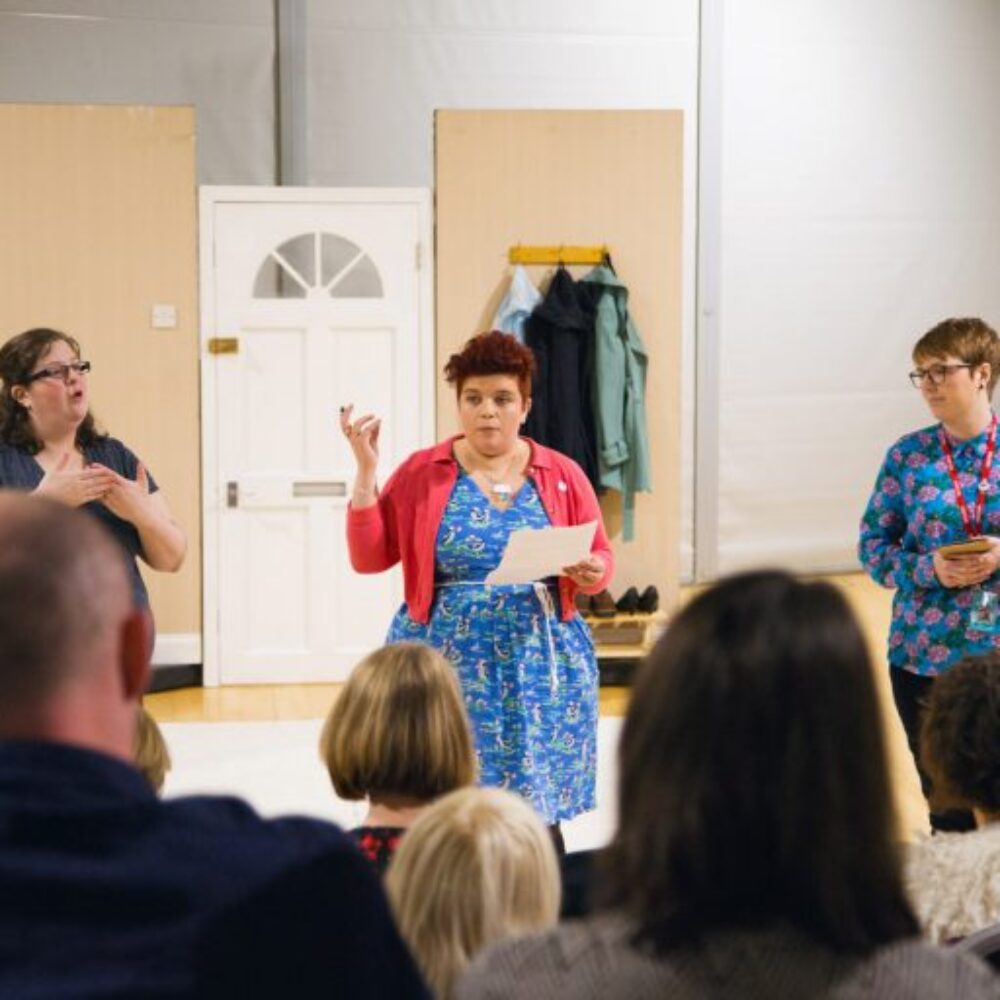


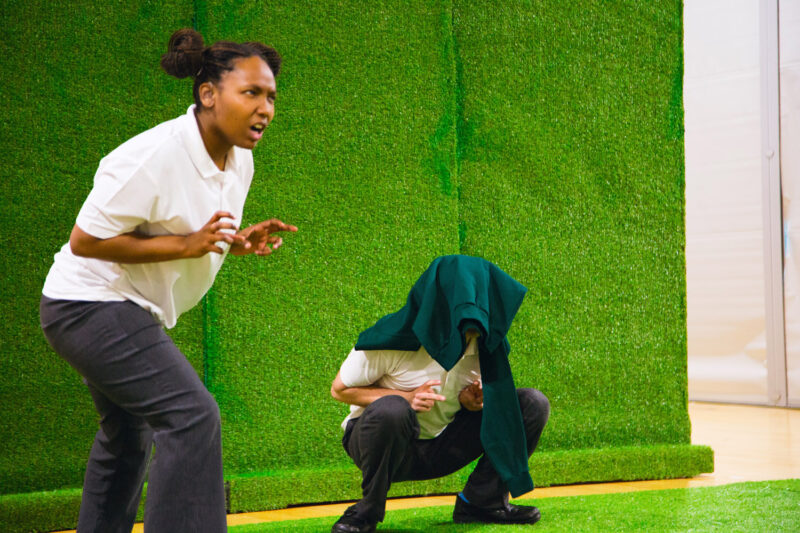
If you follow us on social media, you may have noticed our feeds have been chock-full of dinosaurs! That’s because we’ve been busy working on our new play Stan, written by our very own Sarah Emmott. A bilingual production performed in English and British Sign Language (BSL), Stan is a new play for children which explores communication, friendship, identity, the family unit… and dinosaurs.
Named after the T-Rex at the Manchester Museum, Stan tells the story of a blossoming friendship between a boy who is struggling to cope with the departure of his father, and a deaf girl. As the pair bond over their shared love of dinosaurs and learn to communicate, she leads him into a playful imaginative world, which helps him deal with the change in his family.
As part of our recent Research and Development period of Stan the team have been sharing their experiences. Writer/Director Sarah Emmott discusses learning curves, mental health and burn-out during a creative process.
Our R&D of Stan successfully engaged children and adults in our hometown of Salford, and we hope to continue to develop the work which will reach wider communities soon. As our creative team are writing blogs, I thought it would be more useful to write a blog based on some of my learning curves and questions about the arts, mental health and burn-out during a creative process.
I believe theatre should always be weighted towards the audience – we do not make productions for ourselves, we make it to share with others. However, I’m also interested in how we look after ourselves whilst making the work. Our R&D of Stan has been a new one for us; the first play for audiences under 14, the first time working with a larger team, the first time working with artists new to us (as a company and as individuals), and working in a bi-lingual setting. It’s an ambitious project for us as a micro-company with only two people (Rachel and myself) working ‘behind the scenes’.
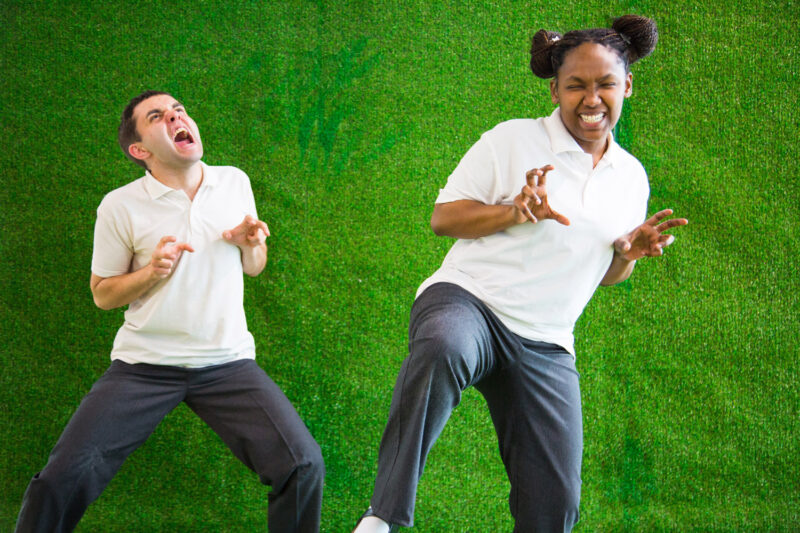

How do we protect our mental health as creatives whilst facing burn-out?
Having performed Declaration and spent the last year speaking very openly about my mental health struggles I know I have to look after myself, but on this project, in a directing capacity, I underestimated how much I would still need to look after my mental health during the process. If I’m honest, I neglected it. I’m sure there are many of us in the arts who are guilty of just ‘cracking on’ because we don’t feel we have time to make time for ourselves during a project. Then, once a project ends, myself and many artists I know experience a post-project low, which even though I know is coming, I never feel fully prepared for. I’m genuinely interested about how, as fellow artists, we can support each other and build in time to projects to look after ourselves and each other because it is so important, and often left until the last thing on a list to address.
And it’s not just looking after yourself during projects, it’s all year round whilst trying to build and grow as a company. To do this, we need to be active, but in this we risk burn-out between projects, which in turn, means that the work we create suffers. As artists we all want to grow and develop along with our company but growing in portfolio and finance, doesn’t always mean growing with stability and security.
As a small company, how do you start to create work on a larger scale without risking burn-out? And how do other small companies balance their time during a project between the work and planning for future work?
I’m really proud of what we’re doing at Art with Heart, and we’re really challenging ourselves as a company, always trying to improve our practice and learn from every project and everyone we work with. As a micro-company, we often dedicate a lot of our time for free to build the company towards a new project or activity. That is a difficult model to sustain, but when speaking to other companies, that is also the model they are using. Once a project is funded, you still need to be planning for the next one because as soon as the project has ended and the funding is spent, you are back to dedicating producer time for free. I’m really interested in how other companies we haven’t spoken to make this work. For example, during Stan I still needed to reply to emails about training and evaluations for previous activity, tour booking emails for the next project and filling in funding applications for our work this Autumn, all whilst in rehearsals for the R&D. The actors and freelancers on the project are applying for their next possible job, worrying about ‘what’s next’ and where their next pay cheque is coming from. We all need to do this in order to keep paying our rent, and in terms of running a company need this to keep creating stronger work with momentum and keep a consistent rapport with audiences/participants.
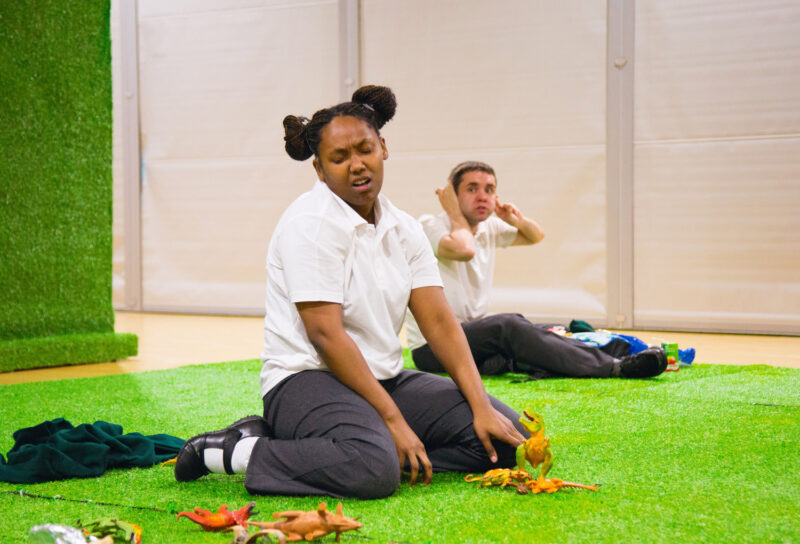
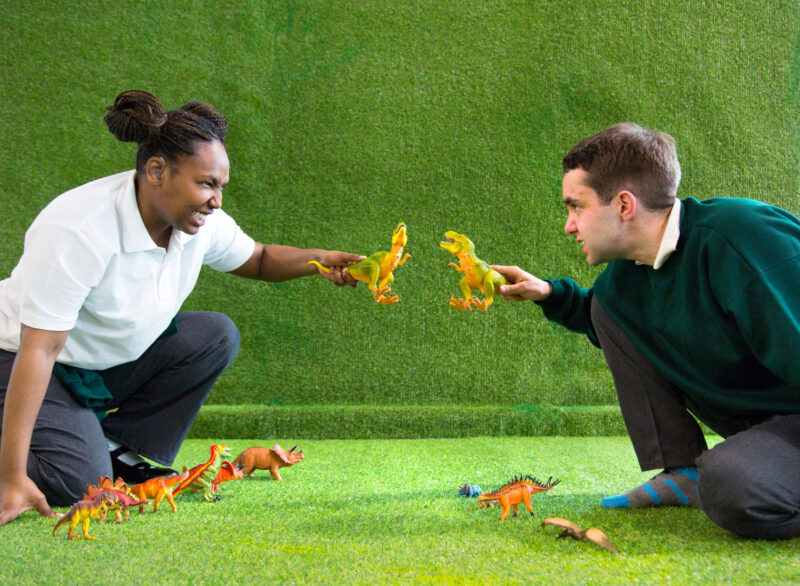
Our Stan R&D was successful, and we are so proud of the work the company created. We are now in a really fortunate position to be part of the GMCA portfolio which will have a genuine positive impact on our work as a company and the participants we work with. However, I worry about the arts ecology as a whole, and how we can create sustainable models of working in the arts and culture sectors which are beneficial for those working on all levels.
I hope that we can continue to create the work we do, engaging more and more audiences and participants each year as we grow stronger, but I not only hope this for us, but for other companies striving for a similar goal across the North West, and beyond. I suppose, my main question is: how do we push forward in a sustainable way together?
Bob us a line at hello@artwithheart.org.uk if you want to join this conversation.
We are Art with Heart, and we want to bring together as many people as possible to unlock their creativity and connection to each other. As a registered charity (1205611), donations make it possible to deliver accessible, representative and inclusive projects, to engage more people, employ more freelancers and plan further into the future. Together, we are building Art with Heart, we would love you to join us! CLICK HERE to donate through our Ko-fi campaign.